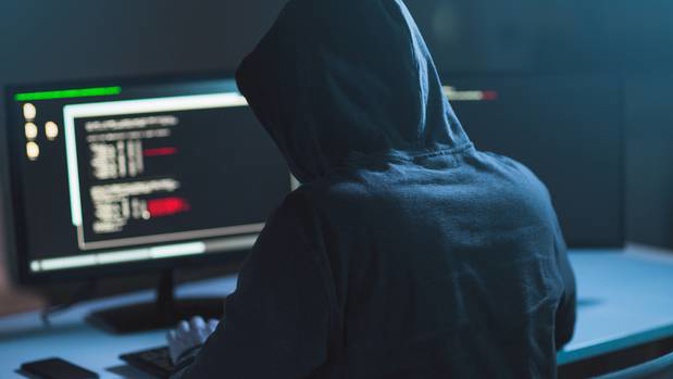
WARNING: This story contains descriptions and language associated with child sex offending.
A New Zealand man calling himself "Kiwipedo" on the dark web has admitted trying to buy a child for $15,000 for sexual abuse and possessing 417 objectionable images just as his trial was nearing a close.
This afternoon after a week of witness testimony the man, who has name suppression, pleaded guilty to two charges before Judge Allan Roberts in the Auckland District Court.
He admitted that between January 13, 2015, and February 20, 2015, he had attempted to enter into a dealing involving a person under 18 for sexual exploitation.
He also accepted that in early 2015 he was in possession of 417 objectionable images.
During trial this week, Crown witnesses had told the court the dark web is an encrypted area of the internet only reachable with special software and inside knowledge of where to go.
Within that area people can buy drugs, guns and explosives but it was also popular with individuals wanting to trade in child exploitation material, one New Zealand police officer said.
"It's the worst of humanity that you see."
That officer, while working covertly in Australia, had messaged a username "Kiwipedo" who he said had later suggested they should "kidnap one and use a basement like Fritz".
This was understood to be a reference to the Austrian paedophilia Josef Fritzl who imprisoned his own daughter in a basement and repeatedly raped her, the court heard.
That officer told the court he passed the username on to other covert investigators working in the DIA who private messaged Kiwipedo.
One investigator told the court in his conversation it was relayed Kiwipedo lived in New Zealand and was willing to pay in cash up to $15,000 or in bitcoin for a child under 7.
Would a Chinese child "cause problems at your end", the investigator had asked.
He told the court he was asking if an Asian child in the household would draw suspicion.
"It's called a basement," Kiwipedo responded in another reference to Fritzl.
The username would later communicate with another covert agent about meeting up in an Auckland motel to abuse a child.
In particular, it would need to be a ground floor room and there needed to proof of life, Kiwipedo allegedly specified.
The profile also asked if they should swap some USBs for their respective collections.
But a meeting never eventuated.
Investigators then used a trace tool to find the relevant computer in an Auckland in mid-2015, where they executed a search warrant.
Media are prevented from revealing exactly how he was caught in the sting due to strict suppression orders.
The accused was read his rights and asked: "Do you know why we are here today?"
"No idea," he replied.
He was asked if he used the internet in general on the premises.
The defendant said he did all his "personal stuff" there, including downloading movies.
He told the investigator he had browsed Silk Road - an online black market - "back in the day" but had deleted it long ago.
Another search warrant was executed and the Crown found evidence of 417 objectionable images on a hard drive.
The case is just one of many to be heard in New Zealand courts during the past few years about international forces collaborating to hunt out instances of child exploitation.
The US Federal Bureau of Investigation, one of the New Zealand police's major partners in identifying child exploitation, found a former North Shore community board chairman paying for access to live child sex shows.
In September 2017, police seized three devices from Martin Lawes' home and when the computers were searched by New Zealand Customs, dozens of objectionable publications were found.
The multi-national investigation, led by the FBI, found Lawes had paid more than $100,000 over a decade to stream the abuse directly from Asia.
The paedophile was jailed for more than four years and six months, while the investigation led to the rescue of exploited children in the Philippines. He was released by the parole board earlier this year.
The US National Centre for Missing and Exploited Children identified an IP address of concern on Waiheke in 2017 which led them to Thomas Moroney.
Moroney was sentenced on 19 charges of possessing and supplying objectionable material to two years of intensive supervision and 200 hours' community work.
US Homeland Security also contacted Online Child Exploitation Across New Zealand police unit (Oceanz) in September 2015 with concerns about a Canterbury link to a global paedophile syndicate on the dark net.
Christchurch man Drew Webb was found to be orchestrating the group and importing and distributing images and films of children being abused, included toddlers and babies.
Thirty-one children, some as young as 2, were rescued in 2017 from the massive child sex network.
Take your Radio, Podcasts and Music with you









